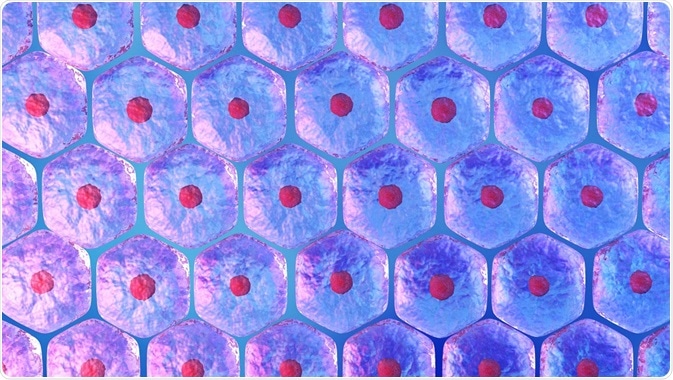WHAT IS DL-CHOLINE?
Racemic choline, also known as DL-choline, is a crucial but occasionally elusive element of our dietary and physiological environment. DL-Choline is a chemical molecule that combines the two choline forms D-choline and L-choline to create a unique mixture. This organic nutrient is water soluble and makes a substantial contribution to the complex field of human health.

WHAT ARE THE BENEFITS OF DL-CHOLINE?
With its broad impact on human health, DL-choline provides a variety of advantages that cut across many physiological categories. These advantages highlight not only its importance but also its adaptability as a vital nutrient in the quest for total wellbeing.
- Cognitive Function: DL-Choline is the star of the show when it comes to cognitive enhancement. It is essential for acetylcholine synthesis and plays a crucial part in enhancing memory, learning, and general cognitive function. Studies have demonstrated that DL-Choline supplementation can improve memory and cognitive function, making it a useful tool for people who want to keep or improve their mental clarity.
- Liver Health: Choline is not only produced by our livers but is also essential for their proper operation. Research from 2012 that was published in Current Opinion in Gastroenterology has shown that those who consume insufficient amounts of choline are more likely to develop fatty liver disease and other liver-related issues. In addition to supporting liver function and preventing liver disorders, choline also serves as a protective component. Choline must be consumed in sufficient amounts to keep this important organ operating properly.
- Cellular Integrity: DL-Choline extends its shielding embrace to the cellular level, assisting in maintaining the structural stability and fluidity of cell membranes all over the body. These cell membranes act as gatekeepers, controlling the entry and exit of substances. For the health of all cells, their proper operation is crucial. The role of DL-Choline in protecting healthy cell membranes and the integrity of cellular processes has been highlighted by studies examining the effects of choline shortage.

Adding DL-Choline to your diet will help you reap these numerous advantages, including improved mental clarity, liver health, cellular integrity, and general energy. However, because everyone’s demands for choline are different, it is best to speak with a healthcare professional to make sure you are getting the right amount for your body.
HOW DOES DL-CHOLINE WORK IN HUMAN BODY?
Racemic choline, also known as DL-choline, is an essential component of the complex biological machinery that makes up the human body. DL-Choline is absorbed largely in the small intestine after a spectacular voyage through the digestive system that begins with intake. When this vitamin reaches the liver, where its crucial functions start to take shape, its versatility becomes clear. The impact of DL-choline extends to lipid metabolism, where it actively helps to produce phospholipids, crucial building blocks of cell membranes.
As a result, it significantly contributes to preserving the structural stability and fluidity of cell membranes throughout the body. The simultaneous movement of dietary lipids and cholesterol from the liver to other parts of the body is made easier by DL-choline, which successfully prevents fat buildup in the liver and maintains overall health.
The significance of DL-Choline also pertains to neurotransmission. Acetylcholine, a neurotransmitter necessary for transferring nerve signals, is synthesised from DL-choline, which functions as an important precursor. This neurotransmitter is essential for several mental processes, such as memory consolidation and muscular control. Because of its several functions in maintaining cellular structure, producing neurotransmitters, and regulating lipid metabolism, DL-choline is essential for good health and wellbeing. Its consequences touch on many different facets of human physiology, including cardiovascular health, liver health, brain function, and several other essential biological processes.
HOW MUCH DL-CHOLINE CAN A PERSON TAKE?
Choline intake recommendations vary by age group and life stage, and there is no particular Reference Daily Intake (RDI) due to a lack of data. Instead, the Institute of Medicine has developed Adequate Intake (AI) recommendations to ensure that most healthy people get enough choline, preventing deficiency-related concerns such liver damage.
Choline needs, however, can vary depending on hereditary variables and gender. The recommended daily intakes for choline are as follows: 125 mg for infants 0–6 months, 150 mg for those 7–12 months, 200 mg for children 1-3 years, 250 mg for children 4–8 years, 375 mg for children 9–13 years, 400 mg for girls 14–19 and 550 mg for boys in the same age group, 425 mg for adult women, 550 mg for adult men, 550 mg for breastfeeding women, and 930 mg for pregnant women.
Individual choline demands can differ, with some people needing more or less than these suggested quantities, as shown by a research where some males experienced symptoms of choline shortage even after ingesting AI.
WHAT ARE THE VARIATIONS OF DL-CHOLINE?
DL-CHOLINE is also available as:
- DL-Choline Bitartrate
- DL-Choline Bitartrate 97% Coated
- DL-Choline Dihydrogen Citrate
DL-CHOLINE is commonly available in:
- DL-CHOLINE tablets
- DL-CHOLINE capsules
- DL-CHOLINE powder
Glentworth Formulations is here to suit your every need. Everything from Tablets, Capsules and Powder blends.
If you are wanting to know more information, please get in contact with us. Either using the contact form or contacting us directly on: [email protected].


